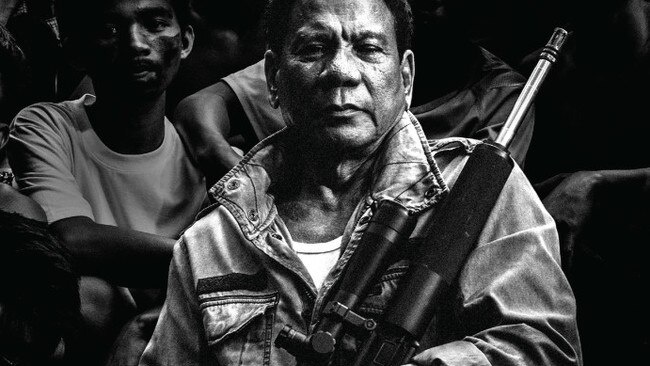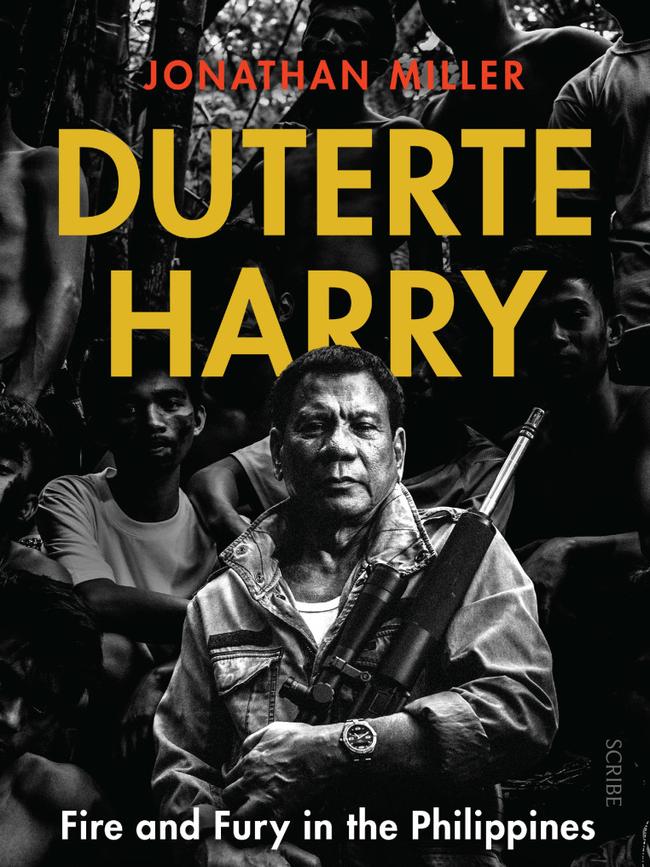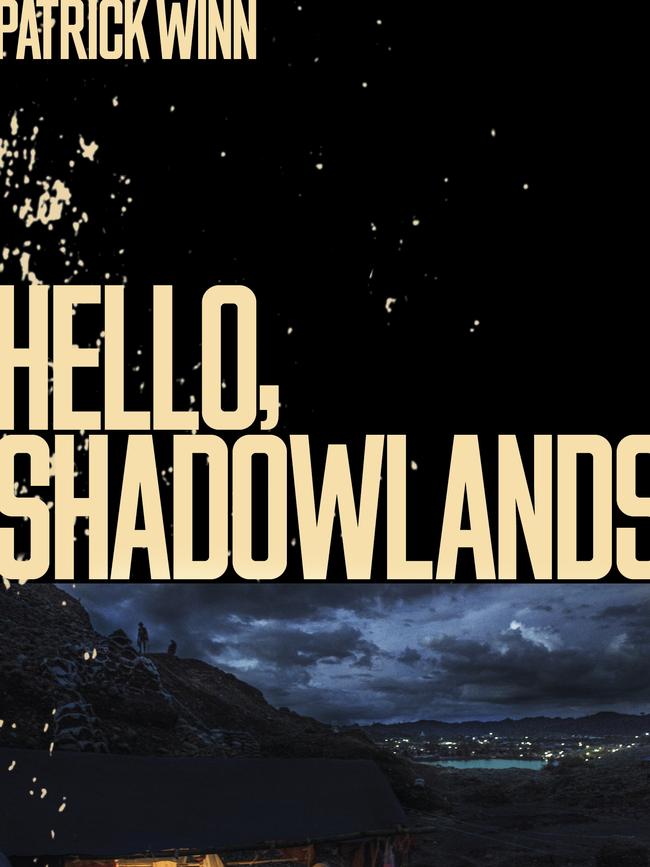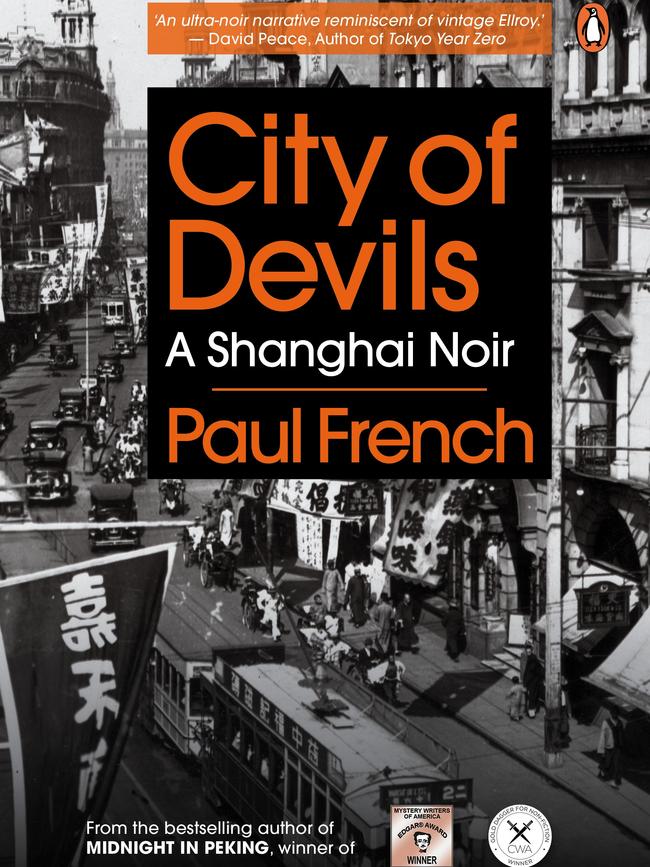Duterte Harry; Hello, Shadowlands; City of Devils reviewed
The Asian Century was meant to be marked by rising prosperity, instead, crime, much of it state-sponsored, is exploding.

It wasn’t supposed to be this way. The Asian Century was expected to be marked by rising prosperity, more equitable distribution of power and improved human rights and social mobility.
Instead, regional economic growth has slowed, democracy is in retreat and crime, much of it state-sponsored, is exploding.
In The Philippines, President Rodrigo Duterte has made doublespeak a national policy, and in the process convinced a large part of the population that mass murder is an effective means of curbing crime.
In Myanmar, the fallen angel of Aung San Suu Kyi has accessorised her Nobel Peace Prize with genocide. In Thailand, a clutch of undistinguished generals is proving that bureaucracy can be just as toxic as ideology.
Above them all is China, which has welded together the most socially and environmentally destructive elements of communism and capitalism in a Faustian bargain to increase its GDP.
For the millions in Southeast Asia who have been failed by their democratically elected leaders, China’s record of economic success has undermined faith in the Western notion that the answer to a failing democracy such as The Philippines is more democracy. These shifts provide the backdrop for Jonathan Miller’s Duterte Harry: Fire and Fury in the Philippines and Patrick Winn’s Hello, Shadowlands: Inside Southeast Asia’s Organized Crimewave.

Duterte embodies all the contradictions that exemplify the new populist era: a “man of the people” whose father was a Marcos-era cabinet minister and provincial governor; a law-and-order president who revels in mass murder; and a campaigner against corruption who is in bed with the country’s most corrupt elements, including the Marcos family.
Miller does an excellent job of describing Duterte’s history, from his out-of-control youth to his time as mayor of Davao — still one of the most violent cities in The Philippines despite the two-decade reign of terror of the mayor’s death squads — to his longstanding misogyny, to his profanity-laced rise to the presidential palace and the subsequent launch of a national campaign against drug users that has killed more than 10,000 people.
What is less clear is why The Philippines was, and remains, so susceptible to Duterte’s murderous populism. An opinion poll in January indicated 79 per cent of Filipinos were satisfied with his performance. This is a question that goes to the heart of Western conceptions of democracy: What happens when a nation uses its democratic vote to elect someone who openly subscribes to the tyranny of the majority?
This makes Duterte seem gigantic, both the prime and the sole mover of his national policy, but it is worth remembering tens of millions of Filipinos continue to cheer him on.
Bangkok-based Miller, a television journalist with long experience in Southeast Asia, does make clear that the checks and balances of the country’s democratic institutions have failed miserably. He charts how Duterte has gelded his nation’s parliament, and how the few legislators who have been willing to stand up to him have been publicly vilified or worse. Senator Leila de Lima, for instance, who campaigned against extrajudicial killings, has been locked up since February 2017.
The parallels with Donald Trump, who has congratulated Duterte on his drugs campaign, are hard to miss: the narcissism, the easily bruised ego, the simplistic and ineffective solutions to complex problems. But the most striking similarity is the lack of any ideological underpinnings in either man. In stronger leaders this might have led to a welcome pragmatism, but in The Philippines and elsewhere it has led to cheap moral chicanery. As Miller writes, “For Duterte, the ends always justify the means. Exactly what those ends are is not clear, and history is full of despots who lost track of the ends in pursuit of the means.”
This book is a history, but also a fable in a time of increasing authoritarian populism. It is a great read, crackling with moral outrage, but, sadly, in a post-factual world it is unlikely to change any minds in Manila or Washington.
If Duterte Harry looks at how a single man is shaping history, Hello, Shadowlands considers how people across Southeast Asia are being forced to operate outside the law to cope with the inequality and injustices they face.

The book’s subtitle, Inside Southeast Asia’s Organized Crimewave, is a little misleading. This is more PJ O’Rourke’s Holidays in Hell than Joe Studwell’s Asian Godfathers.
Winn, a Bangkok-based journalist, is principally interested in how ordinary people band together to right what they perceive as injustices, be it Myanmar’s complicity in drug addiction in the north of the country, or the theft of dogs in Vietnam.
The result is a valuable corrective in a time when we are becoming more ready to regard violence and crime as the result of some kind of mass derangement and therefore beyond policy or assistance. Winn reminds us that behind most seemingly senseless acts of violence are rational people responding rationally to fundamentally irrational circumstances.
From prostitutes who make a considered decision to work in a virtual war zone in southern Thailand to vigilante detox in northern Myanmar, from the women who sell abortion pills outside a cathedral in Manila to former fighters in Vietnam who lynched dog thieves, Winn reminds us of the people behind the headlines.
More often than not, these are communities where the state, when not actively predatory, has failed in its most basic obligations such as security and healthcare. There is, Winn finds, a degree of solidarity among the downtrodden, although he is clear that this can also find a darker expression as vigilante violence.
He is an engaging writer with obvious empathy for his subjects and an eye for detail, even if some of the more gnarly bits of history and geopolitics often threaten to get away from him, and sometimes succeed in doing so.
History is Paul French’s stock-in-trade. The Shanghai-based journalist and writer has almost single-handedly invented a new genre, historical China noir, particularly with the success of Midnight in Peking, about the murder of a young British woman in Beijing in 1937.
His new book, City of Devils: A Shanghai Noir, is a recreation of the murky lives of two Western chancers living in Shanghai on the eve of the Pearl Harbor attacks.

He has adapted Raymond Chandler’s lexicon for the job — there’s a substantial glossary at the back — to the extent that it sometimes feels like he’s chomping an unlit cigar and nursing a glass of bourbon beside his laptop: “Down these mean streets a man must go who is not himself mean, neither tarnished nor afraid.”
But there’s no place for a Philip Marlowe in French’s Shanghai. Most of the remaining international community is mean and tarnished in some way, and everyone is afraid.
As the darkness of war spreads across the globe, Shanghai becomes a sinkpot of misery for most — but an enclosed world of opportunity for those with money and no morals left to lose.
They are holed up in the autonomous International Settlement, a place beyond Chinese and, for briefly, Japanese authority. The Japanese are at the gates of the city, and for the tens of thousands trapped there, there is nowhere to go and no means to get there anyway. Shanghai was the end of the road for thousands of foreign refugees, among them those who had fled Nazism in Europe or communism in the Soviet Union, as well as those with criminal pasts.
As Chinese refugees died in their thousands on the streets of the International Settlement, a small section of this society went out to palatial dance halls and casinos to gamble and hear bands imported from the US.
French follows two of the key players in this danse macabre. Fahnie Albert Becker fled a 35-year sentence for kidnapping in the US, changed his name to Jack Riley and moved to Shanghai, where he came to dominate the slot machine business; Josef Pollack escaped the ghettos of Vienna to become Joe Farren, professional dancer, impresario and nightclub owner in Shanghai’s manic dying days.
City of Devils is not so much a forensic excavation as a literary recreation of a single point in time: the exclamation mark at the end of China’s century of humiliation.
French has done a phenomenal amount of research: from the minutiae of fashion — apparently men would bring up to half a dozen extra collars when they went out on a summer’s evening — to perfumes, to the cars driven by the main characters.
It is a tour de force, and I would recommend it to anyone interested in the period.
Tim Johnston is a journalist and critic.
Duterte Harry: Fire and Fury in the Philippines
By Jonathan Miller
Scribe, 352pp, $32.99
Hello, Shadowlands: Inside Southeast Asia’s Organized Crimewave
By Patrick Winn
Icon Books, 384pp, $29.99
City of Devils: The Two Men Who Ruled the Underworld of Old Shanghai
By Paul French
Viking, 288pp, $32.99


